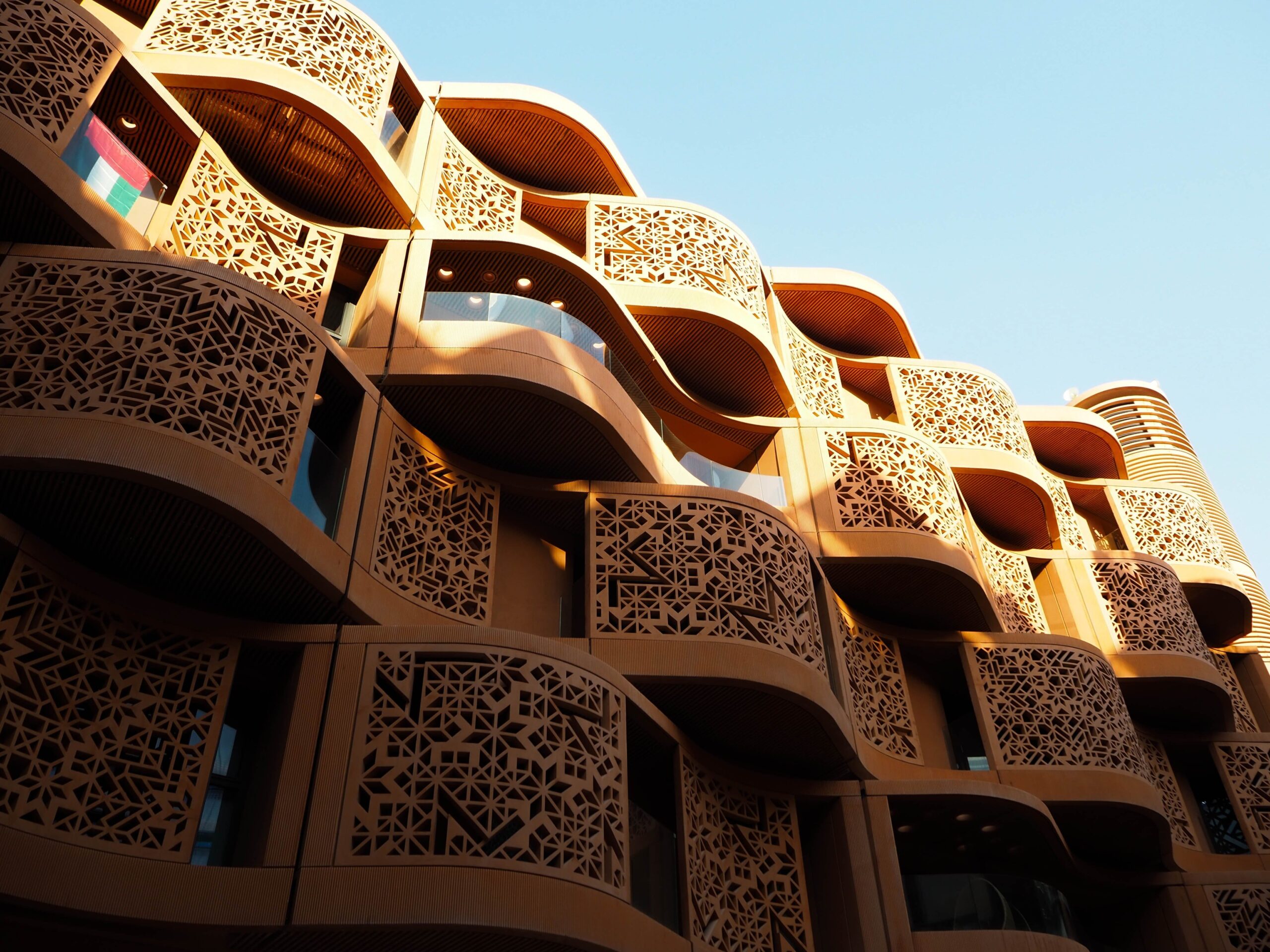
Real Estate Investment Strategies Tailored for Abu Dhabi Residents
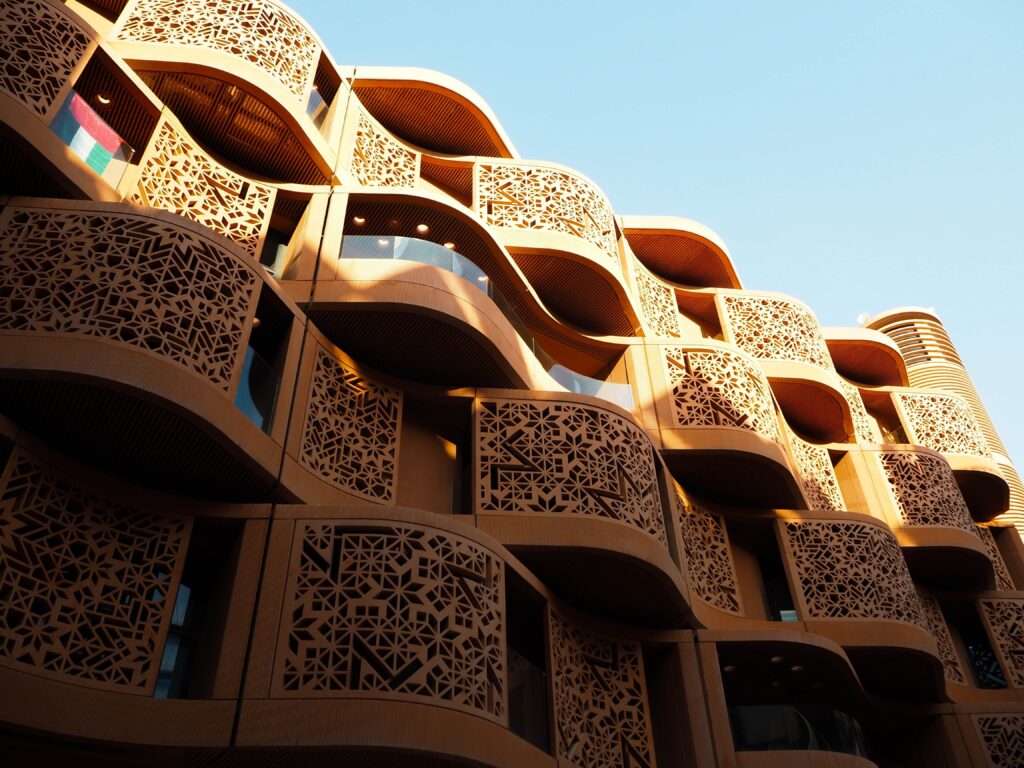
Abu Dhabi, the capital of the United Arab Emirates, is a thriving metropolis known for its economic stability, cultural diversity, and abundant investment opportunities. With its rapidly growing real estate sector, Abu Dhabi has become an attractive destination for both local and international property investors.
This guide from Trusts Accounts and Management is tailored to Abu Dhabi residents and foreign investors, offering valuable insights into property investment strategies that can help them make informed decisions and secure their financial future.
Local Market Analysis
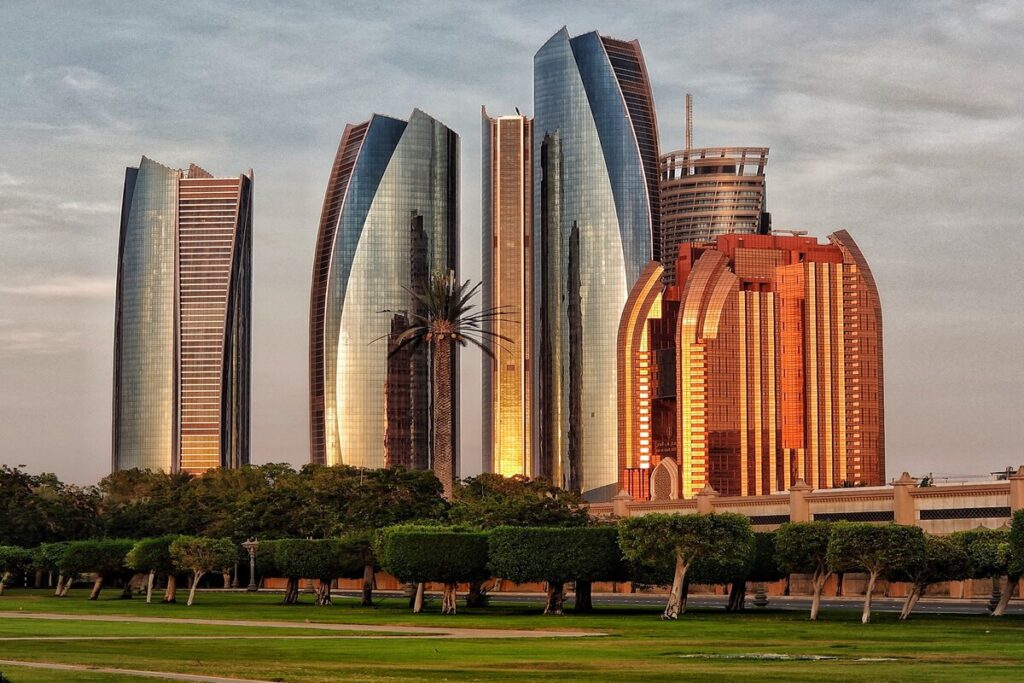
Understanding the current real estate market in Abu Dhabi is crucial for successful property investment.
Here are some key factors to consider:
- Economic Stability
Abu Dhabi’s strong economy, driven by oil and gas revenues, ensures long-term stability and growth in the real estate market. The UAE’s natural resource riches even surpass the other Middle East countries. These reserves make Abu Dhabi the economic powerhouse of the Middle East and real estate investment strategies in Abu Dhabi are a very wise investment option for local residents and foreign developers as well.
United Arab Emirates (UAE), the Emirate of Abu Dhabi, has grown from being a modest settlement with an economy based on its fishing and pearl diving industries to a thriving, global city following the discovery of vast oil reserves in 1958.
With oil reserves estimated to last for another 100 years, the Emirate of Abu Dhabi (covering 87% of the UAE’s total area) has taken a considered, sustainable approach to its real estate development.
- Demand and Supply
The real estate market in Abu Dhabi is characterized by a robust demand for properties across various sectors.
This heightened demand can be attributed to several factors:
- Residential properties remain highly sought after, driven by a growing population and a steady influx of expatriates seeking opportunities in the Emirate. The appeal of Abu Dhabi as a cosmopolitan city with a high quality of life continues to draw individuals and families, bolstering the demand for homes.
- Commercial spaces are also in high demand, especially in central business districts and free zones. The flourishing business environment, coupled with favorable policies for entrepreneurs and corporations, has led to a surge in demand for office spaces and commercial real estate.
- Retail properties play a crucial role in the market as well, with shopping centers and malls serving as key hubs for entertainment and commerce. The demand for retail spaces is driven by a consumer-oriented culture and a thriving tourism sector.
While the demand for real estate remains strong, Abu Dhabi’s government and private developers are proactively working to balance it with a strategic supply of properties. This involves carefully planning new developments and aligning them with market demands to prevent oversaturation.
- Infrastructure Development
Abu Dhabi is experiencing a remarkable surge in infrastructure development, positioning itself as a global city of the future. The Emirate’s authorities have undertaken ambitious projects to enhance the urban landscape and support its economic diversification efforts.
One of the key areas of focus is the expansion of transportation networks. Major initiatives include the construction of new roads, bridges, and tunnels, improving connectivity within the city and to neighboring regions. Notable projects like the Sheikh Khalifa bin Zayed Highway and the Sheikh Khalifa Energy Complex are prime examples of this infrastructural advancement.
The development of new districts and communities is a testament to Abu Dhabi’s forward-looking approach. Emerging zones, equipped with modern amenities and facilities, are attracting investors and residents alike. These districts are designed to cater to various needs, from residential spaces to commercial hubs, providing a diverse range of opportunities for real estate investment.
In addition, the Emirate is placing a strong emphasis on sustainable infrastructure. Eco-friendly projects, such as renewable energy initiatives and green building practices, are gaining prominence. This not only aligns with global sustainability goals but also enhances the appeal of Abu Dhabi as an environmentally-conscious city for investors and residents.
Keep an eye on major infrastructure projects, such as the development of new districts and transportation hubs, as they can drive property value appreciation. The Abu Dhabi real estate market is growing rapidly and breaking records.
The Emirate’s authorities are announcing new zones where expats and investors can acquire title to real estate. As of 2023, there are already 25 such districts.
Investment Strategies
Tailored investment strategies are essential to meet the unique needs and goals of Abu Dhabi residents. The return on investment averages from 5% to 7.3% per annum, depending on the chosen area and type of real estate.
Some property developers promise a yield of 10-11%. The profitability of property depends to a large extent on its proximity to the coast and the city’s sights. The location can in turn affect the decision on the specific investment strategy to choose: a long-term or short-term let or resale:
- Buy and Hold
Acquire properties for long-term investment, benefiting from rental income and capital appreciation over time. It is a time-tested strategy to hold on to get the appreciation of the value of a property for future sales.
- Short-Term Rentals
Capitalize on Abu Dhabi’s vibrant tourism industry by investing in properties for short-term rentals through platforms like Airbnb. The plan is to let the property pay for its value and get the money from the construction and land back.
- Off-Plan Properties
Purchasing properties during the pre-construction phase can provide early-bird discounts and the potential for significant appreciation upon completion. This is a really financially ingenious strategy to get in on the groundfall of a major infrastructural development.
- Real Estate Investment Trusts (REITs)
REITs, or real estate investment trusts, are companies that own or finance income-producing real estate across a range of property sectors. These real estate companies have to meet a number of requirements to qualify as REITs.
Most REITs trade on major stock exchanges, and they offer a number of benefits to investors. Invest in REITs for a diversified portfolio of real estate assets without the need for direct property ownership.
Legal and Regulatory Considerations
Understanding the legal framework is vital when investing in Abu Dhabi’s real estate market:
- Property Ownership
Abu Dhabi residents, as well as foreign investors, can own property in designated investment zones. It was recently announced that Abu Dhabi Global Market (ADGM) was “open for business”.
The UAE’s newest financial center offers investors a sophisticated legal regulatory framework, including its own real estate laws (the ADGM real property regulations of 2015) which will be applicable to Al Maryah Island, the location of ADGM and prime real estate located in the center of Abu Dhabi.
- Lease Agreements
Familiarize yourself with the standard terms and conditions of lease agreements, including rent increases and security deposits. If you’re planning to rent a property in the capital or you’re a landlord looking to lease out a property in Real Estate Investment Strategies in Abu Dhabi, then you’ll need to know about tenancy contracts in Abu Dhabi.
Rental agreements need to be registered with Tawtheeq Abu Dhabi to ensure transparency and safeguard the rights of both landlords and tenants.
- Taxes
The UAE imposes no personal income tax, but investors should be aware of property registration fees, service charges, and potential value-added tax (VAT) on certain real estate transactions.
When buying property in the UAE, two types of taxes are paid: a Transfer Fee and a Registration Fee. The Transfer Fee rate may vary in different emirates. For example, the property tax in Dubai is 4%, while in Abu Dhabi, it’s 2%. This sum is usually divided equally between the buyer and the seller.
Location Matters
Choosing the right location is a critical element of successful real estate investment in Abu Dhabi:
- Al Reem Island
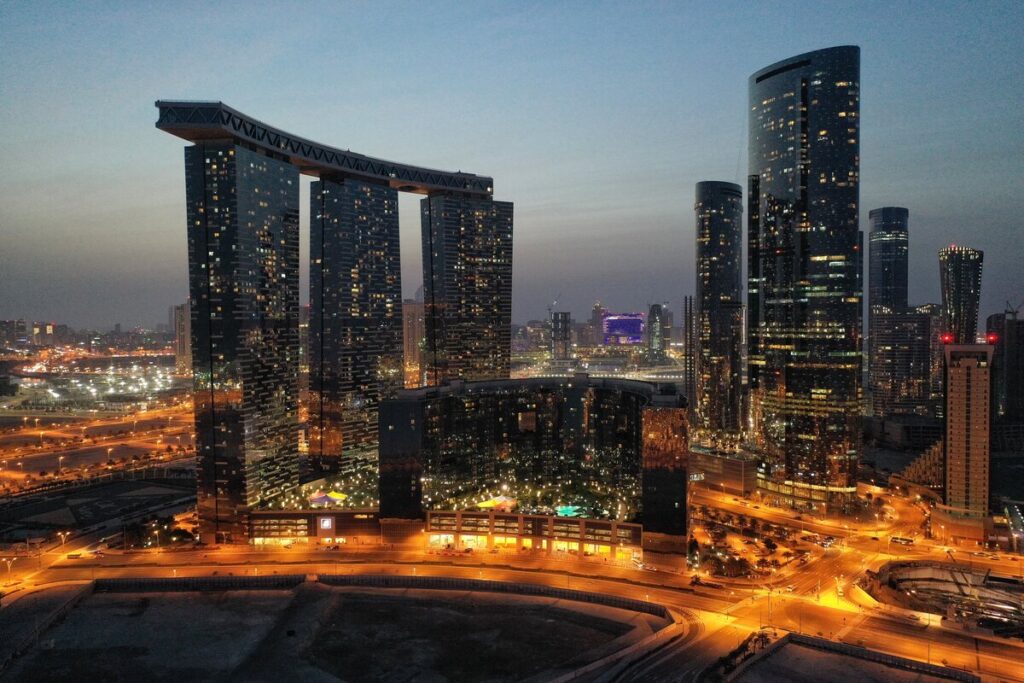
Al Reem Island, developed by key industry players such as Sorouh Real Estate (now merged with Aldar Properties PJSC), Reem Investments, and Tamouh, is a prime real estate destination in Abu Dhabi. With an ambitious vision and investment costs exceeding $30 billion, this island holds significant potential for real estate investors.
Al Reem Island’s appeal lies in its meticulously planned development, offering:
- Diverse Residential Options: The island hosts a wide range of residential properties, from luxurious apartments to spacious villas, catering to various preferences and lifestyles.
- Amenities and Facilities: Al Reem Island is designed to provide residents with a comprehensive range of amenities, including parks, recreational areas, schools, healthcare facilities, and shopping centers, ensuring a comfortable and convenient living experience.
- Strategic Location: Situated strategically in close proximity to the heart of Abu Dhabi, Al Reem Island offers easy access to key business districts, commercial centers, and cultural attractions.
- Saadiyat Island
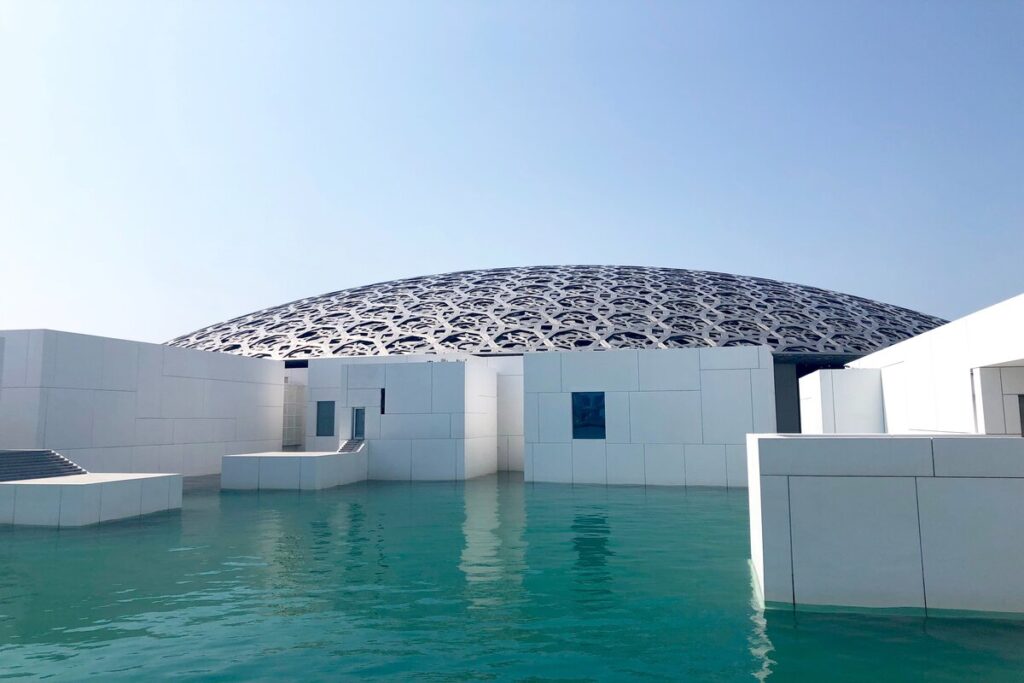
The project is being developed by the Abu Dhabi Tourism Authority-held Tourism Development & Investment Company (TDIC). The company plans to dispose of development to private investors that will work on their sites in accordance with the master plan as well as other ground rules.[5][6] The plan for Saadiyat Island was done by EDAW and continued under AECOM.
This island, located just 500 meters off the coast of Abu Dhabi, offers a unique investment proposition. An entire district on the island is devoted to culture and the arts, with exhibitions, permanent collections, productions, and performances.
- Cultural and Artistic Enrichment: Saadiyat Island is dedicated to fostering a vibrant cultural community. With a master plan developed by leading firms like EDAW and AECOM, the island boasts world-class cultural institutions, including the Louvre Abu Dhabi and Manarat Al Saadiyat, making it a cultural epicenter.
- Scenic Beauty and Tranquility: The island’s picturesque surroundings, complemented by pristine beaches and natural landscapes, create an idyllic environment for both residents and visitors.
- Investment Potential: With a well-defined master plan and a commitment to cultural enrichment, Saadiyat Island presents an opportunity for investors seeking to be part of a dynamic cultural hub while potentially benefiting from the appreciation of real estate values.
- Yas Island
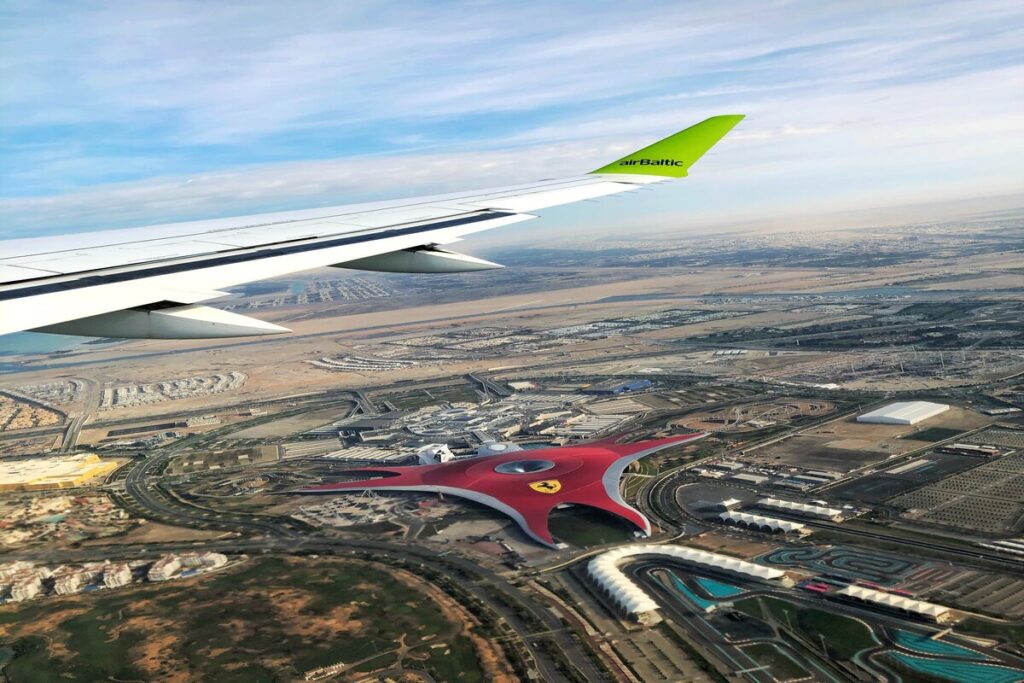
The island’s development was initiated in 2006 with the aim of turning the island into a multi-purpose leisure, shopping and entertainment center. The island was envisioned as a multi-stage project that unfolded in phases until 2018, with further development potential in mind.
Today, it stands as one of the most coveted residential areas in Abu Dhabi, renowned for its exceptional amenities and accessibility. Strategically located off the coast of Abu Dhabi, Yas Island boasts a wide array of attractions and amenities that make it a highly attractive prospect for real estate investment.
These include:
- Diverse Entertainment Options: Yas Island is home to an impressive array of entertainment venues, including the renowned Yas Marina Circuit, Ferrari World Abu Dhabi, and Yas Waterworld. These attractions draw visitors from around the world, contributing to the island’s vibrant atmosphere.
- Retail and Shopping Experiences: The island offers an array of shopping and retail options, including Yas Mall, which hosts a diverse range of international and local brands. This robust retail environment adds to the appeal for both residents and tourists.
- Accessibility and Connectivity: The island’s strategic location ensures easy access to Abu Dhabi’s central business district and other key areas. Its proximity to Abu Dhabi International Airport and well-developed road network further enhance connectivity.
- Cultural and Recreational Offerings: In addition to its entertainment options, Yas Island is poised to become a cultural hub. With plans for exhibitions, permanent collections, productions, and performances, it promises a well-rounded cultural experience for both residents and visitors.
In summary, Yas Island, Al Reem Island, and Saadiyat Island each offer unique investment potential in the Abu Dhabi real estate market. Their strategic locations, diverse offerings, and commitment to cultural enrichment make them prime destinations for investors seeking long-term growth and value.
- Proximity to Amenities
Properties close to schools, hospitals, shopping centers, and public transportation tend to have higher demand. There are so many schools, hospitals, and shopping centers in Abu Dhabi that one is never that far off from any one of these facilities.
- Waterfront Properties

Waterfront properties often command premium prices, making them attractive for both living and investment purposes. Saadiyat Island is perfect for those with an appreciation for culture and art. Being the cultural hub that houses the Louvre Abu Dhabi, Manarat Al Saadiyat, and many more distinct spots, Saadiyat Island is one of the most expensive and luxurious places in Abu Dhabi
Financing Options
Property investment often involves significant capital. Abu Dhabi residents have access to various financing options:
- Mortgages
The United Arab Emirates has become an increasingly popular destination for expats, especially in business-friendly areas such as Dubai and Abu Dhabi.
In recognition of this trend, the mortgage market in the UAE is now well-established, with international and local lenders offering home loans to expats. Both residential and buy-to-let mortgages are available to foreign nationals living in the UAE, although their criteria vary. Local banks offer mortgage products tailored to residents, including competitive interest rates and favorable terms.
Millions of expats live in the UAE, but many still choose to rent; either due to the cost of buying, uncertainty about how long they will be living abroad, or the costs involved in a property purchase. Foreign buyers in the UAE can purchase apartments and houses in specified areas that contain freehold developments.
Many expats purchase new homes off-plan, directly from a developer. This often involves paying a 10% deposit up-front and then making further payments on specified dates while the property is being constructed.
- Developer Financing
Although the UAE is undoubtedly a development-friendly jurisdiction there are a number of regulatory measures and licensing requirements to consider. In addition, clearly defining the roles and responsibilities of the parties and ensuring that correct and sufficient security is available and in place at the appropriate times are also of paramount importance and should be treated as a priority in the structuring stage.
There are three themes to analysis of the relevant issues:
- Due diligence;
- Roles and responsibilities; and
- Regulation and licensing.
In the early stages of any development finance transaction, the parties should consider the type of project, its revenue sources, how any finance will be serviced, and the potential market for the project.
Each of these will be important in identifying how the lenders can best protect their position while ensuring that the financing solution offered to the borrower meets their short and longer-term commercial needs.
- Investment Groups
Owned by the Abu Dhabi Investment Council – a strong and supportive parent – Invest AD is closely aligned with the long-term diversification and growth objectives of the Abu Dhabi authorities as clearly expressed in the government’s long-term strategy, the Abu Dhabi 2030 Vision.
Abu Dhabi has built a reputation as one of the best investment destinations in the region, empowering businesses to be competitive and innovative. The country’s capital boasts state-of-the-art infrastructure, connectivity, and easy access to the regional and global markets.
Diversification.
Diversifying your real estate portfolio is a wise strategy to spread risk and increase your chances of success:
- Mixed-Use Developments
Mixed-use developments in Abu Dhabi prioritize the creation of engaging public spaces that promote social interaction and community integration. Uncover the beautifully designed plazas, parks, and pedestrian-friendly walkways that invite residents and visitors to connect, relax and engage with their surroundings.
Mixed-use developments in Abu Dhabi prioritize the creation of engaging public spaces that promote social interaction and community integration. Uncover the beautifully designed plazas, parks, and pedestrian-friendly walkways that invite residents and visitors to connect, relax and engage with their surroundings.
- International Investments
Foreign direct investment (FDI) by individuals in Abu Dhabi’s real estate sector has reached AED 834.6 million during the first half of 2023, representing an increase of 363% compared to the same period in 2022.
According to data released by the Department of Municipalities and Transport (DMT), Saadiyat Island, Yas Island, Al Jurf, Al Reem Island, and Al Shamkha area topped the list in terms of the highest shares of foreign direct investment by individuals.
Risk Management.
Investing in real estate can be lucrative, but it’s not without its share of risks. Here are some essential strategies to help you mitigate potential pitfalls:
- Conduct Comprehensive Due Diligence:
Before making any real estate investment, thorough due diligence is paramount. This involves conducting a detailed assessment of the property and its surrounding market. Consider the following steps:
- Property Inspections: Hire qualified professionals to inspect the property thoroughly. This should cover structural integrity, electrical systems, plumbing, and any potential issues. Understanding the condition of the property will help you make informed decisions about potential repairs or renovations.
- Market Analysis: Study the local real estate market trends, including property values, rental rates, and demand. Look for areas experiencing growth and consider factors like proximity to amenities, schools, and transportation hubs. Understanding the market dynamics will guide you in selecting properties with strong potential for appreciation.
- Financial Analysis: Evaluate the potential return on investment (ROI) by considering factors like acquisition costs, potential rental income, and anticipated expenses (including maintenance, taxes, and property management fees). This analysis will help you determine if the investment aligns with your financial goals.
- Seek Legal Advice from Experts:
Navigating the legal aspects of real estate investment in the UAE requires specialized knowledge. Consulting with a legal professional experienced in UAE real estate laws is crucial. They can provide valuable insights and ensure that your investments comply with all relevant regulations.
Key areas to focus on include:
- Property Ownership Laws: Understand the rules and restrictions regarding property ownership for both residents and foreign investors. This includes knowledge of designated investment zones and any limitations on ownership rights.
- Lease Agreements: Familiarize yourself with the standard terms and conditions of lease agreements. This includes details about rent increases, security deposits, and tenant rights. Ensuring compliance with these legal aspects is essential for a smooth and secure rental process.
- Tax Implications: While the UAE doesn’t impose personal income tax, there may be other tax considerations related to property transactions. This could include property registration fees, service charges, and potential value-added tax (VAT) on certain real estate transactions.
- Engage Reputable Property Management Services:
Effective property management is crucial for safeguarding your investment and maximizing returns.
A reputable property management company can handle various aspects of property ownership, including:
- Maintenance and Repairs: Ensuring that the property is well-maintained is essential for preserving its value. A property management company can oversee routine maintenance and address any necessary repairs promptly.
- Rental Management: Handling tenant relations, lease agreements, rent collection, and addressing any tenant concerns is a critical aspect of property management. Professionals can help you navigate these responsibilities efficiently.
- Market Knowledge: Property managers have their finger on the pulse of the local real estate market. They can provide valuable insights on rental rates, tenant preferences, and market trends, helping you make informed decisions about your investment.
By implementing these risk management strategies, you’ll be well-equipped to navigate the complexities of real estate investment in Abu Dhabi, ensuring a more secure and potentially profitable venture. Remember, thorough research, legal guidance, and professional property management are key pillars of a successful real estate investment strategy.
Conclusion.

Venturing into real estate investment presents a compelling opportunity for Abu Dhabi residents seeking to fortify their financial future. Armed with knowledge about the local market, tailored investment strategies, and a keen awareness of legal and financial considerations, residents can make prudent decisions that align with their long-term goals.
Diversification and astute risk management serve as pivotal cornerstones in the construction of a thriving real estate portfolio within the dynamic landscape of Abu Dhabi. The city’s inherent potential for growth and opportunity makes it a prime destination for savvy investors.
Are you eager to delve deeper into the realm of real estate investment in Abu Dhabi? Whether you’re seeking personalized advice or exploring additional resources. Our team at Trusts Accounts Management is here to guide you every step of the way. Reach out to us today and embark on your journey towards a prosperous financial future.

